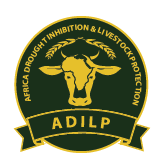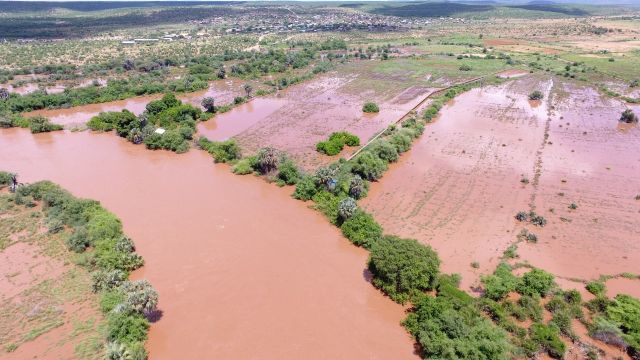Mandera is a province of Northeastern Kenya, located on the border of Somalia and Ethiopia.
The smallholder farmers of Mandera live on and farm the vast expanse of arable land within the County of Mandera. But, agro-pastoral communities of Mandera have been marginalized. Yet, they manage a considerable percentage of the country’s livestock and rely on agriculture as a source of food and income.
Challenges Faced by the Smallholder Farmers
The Climatic Conditions of Mandera-
Mandera County is semi-arid and receives an average annual rainfall below 250mm. The place is vulnerable to droughts, solar heat from three directions, and moisture stress that affect the production, storage, and sale of agricultural harvest. The recurring flash floods affect crop production and restrict access to markets to sell the produce. Occasional flooding of river Dawa during the long rains sometimes sweeps away their crops, leaving them with massive losses.
Researchers say that from 2021 to 2065, the climatic trend will continue with droughts and floods. The modern coping mechanisms for such extreme climate include sowing drought-tolerant crops, small-scale water harvesting, fodder production, small-scale irrigation, and implementing agroforestry.
The Background of Farmers-
The majority of these farmers come from disadvantaged backgrounds and lack resources needed to be competitive in the market.
Initially, the farmers would pump water using engine pumps or fetch water from the river and manually irrigate the farms. They would then use furrow irrigation to water their crops. The fuel costs were high and a lot of water wasted through the furrow irrigation.
Additionally, they lack access to technology and information that would help in production, marketing, and financing options.
SunCulture then geared towards empowering the lives of smallholder farmers in Mandera by supplying them with reliable fundamental tools such as irrigation systems and water pumps.
Our Solution to Improve the Cultivation Methods
Islamic Relief Kenya (the implementing partner) collaborated with SunCulture Ltd through the Securing Water for Food Project (SWFF). Our mutual aim is to provide AgroSolar Irrigation systems for farmers in Mandera County.
The source of water for irrigation is the river Dawa, shallow wells, and water pans. Crops get instant water supply from the system. The farmers of Mandera can now extensively grow onions, tomatoes, and watermelons, which have a readily available local market.
AgroSolar Irrigation System
We provide drip irrigation as one of the solutions to smallholder farmers which helps to deliver water directly to roots faster than traditional drip lines.
Our AgroSolar Irrigation System is a revolutionary solar-powered irrigation system. The SunCulture AgroSolar Irrigation System is ideal for the organic and sustainable farmer, as it saves water, protects the environment. It is ideally suited for high-density plantings, particularly in the tropics.
Each AgroSolar Irrigation system comprises an SP300 submersible pump powered by 300W solar modules and a one-acre drip irrigation system.
The Impact on the lives of Smallholders
We implemented the project between 2016 and 2019. A total of 40 farmer groups, each with an average of 10 members, have so far benefitted from the AgroSolar Irrigation systems.
A significant influence of executing the AgroSolar Irrigation Project is on the lifestyle of the smallholder farmers.
A farmer belonging to one of the 40 farmer groups, Abukar Wario, bought a motorbike from the extra income that he earned. He uses the motorbike to ferry people and goods and earn more money. Asserting the benefits of the AgroSolar Irrigation System, Abukar says, “I do not need to spend 500/- per week on the purchase of petrol for the engine pump.”
Ismail Salat, a technician who was trained by SunCulture on the installation of the solar irrigation systems, now does drip irrigation installations and trains new customers at a fee. He is also a member of one of the beneficiary groups — Mado Wells Youth Group.
With the successful installation of irrigation systems, farmers spend less time fetching water. Thus, deploy available time more for other economic activities and also to spend with their families.
Besides, the farmers who traditionally were pastoralists now have a changed mindset after experiencing success with farming.
SunCulture Solar Solutions
We provide world-class and flexible solar installations that surpass our customers’ expectations. From rethinking of grid connection, automating watering systems to integrating energy management programs into your existing setup. Our goal is to provide smart and useful outcomes to help you manage electricity costs and maximize your productivity with a focus on affordability, easy installation, and maintenance-free systems.
Source
Tom Vranken | Sunculture.io


